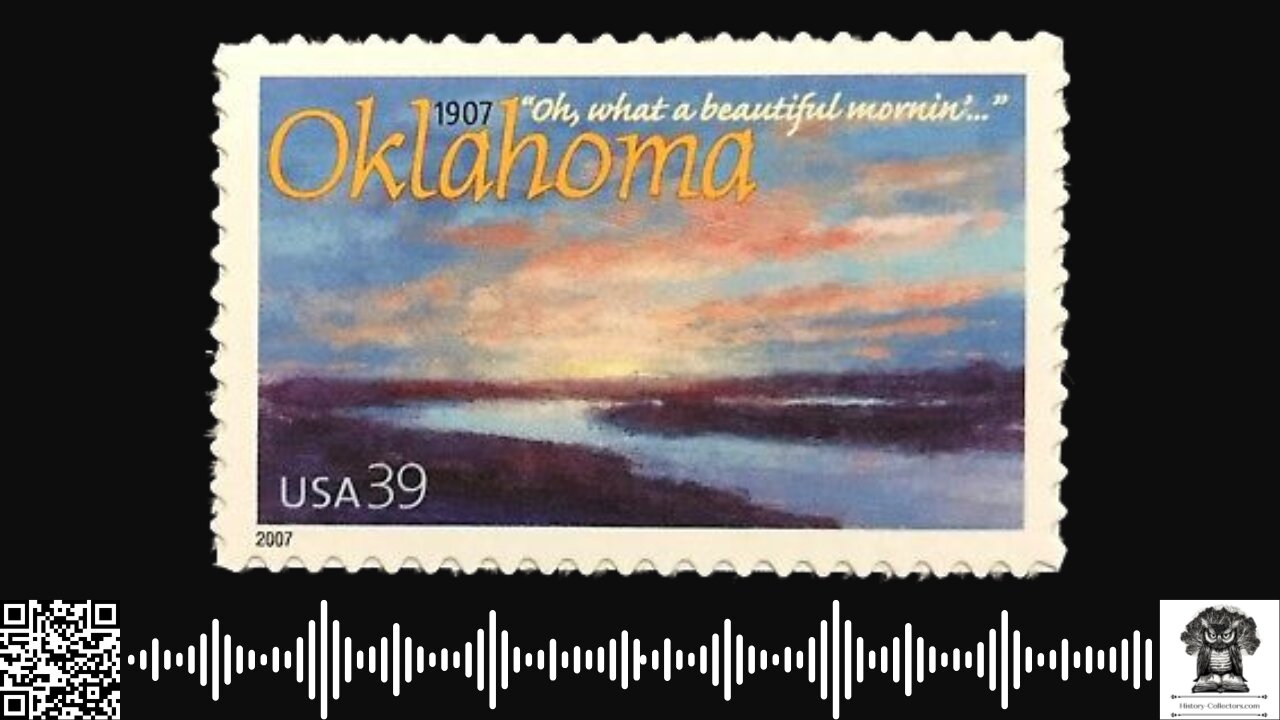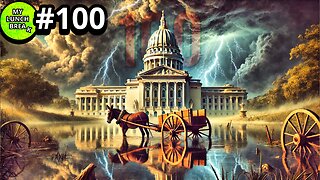Premium Only Content

#OnThisDate November 16, 1907 - Oklahoma's Big Day
President Theodore Roosevelt Signed Proclamation 780, Officially Admitting Oklahoma As The 46th State Of The United States. This Event Marked The Culmination Of A Complex Journey Toward Statehood, Involving The Unification Of Oklahoma Territory And Indian Territory.
The Path To Statehood Began With The Oklahoma Organic Act Of 1890, Which Established Oklahoma Territory In The Western Part Of Present-Day Oklahoma. Simultaneously, Indian Territory In The East Was Home To The Five Civilized Tribes: Cherokee, Choctaw, Chickasaw, Creek, And Seminole. In 1905, Leaders From These Tribes Convened The Sequoyah Constitutional Convention In Muskogee, Aiming To Create A Separate State Named Sequoyah. Despite Drafting A Constitution And Proposing A Government Structure, Their Efforts Were Unsuccessful.
Subsequently, The Oklahoma Enabling Act Of 1906 Authorized The Residents Of Both Territories To Draft A Constitution For A Single State. The Oklahoma Constitutional Convention Convened In Guthrie On November 20, 1906, With William H. Murray Serving As President And Charles N. Haskell As A Prominent Delegate. The Convention Produced A Progressive Constitution That Included Provisions For Direct Democracy, Labor Rights, And Strict Regulation Of Corporate Activities.
Following The Approval Of The Constitution By Voters On September 17, 1907, President Roosevelt's Proclamation On November 16, 1907, Officially Recognized Oklahoma's Statehood. Charles N. Haskell Was Inaugurated As The State's First Governor In Guthrie, Which Served As The Temporary Capital. In 1910, A Statewide Election Resulted In The Relocation Of The Capital To Oklahoma City.
Oklahoma's Admission To The Union Was Significant For Several Reasons. It Represented The Integration Of Diverse Cultures, Including Native American Tribes And Settlers, Into The American Fabric. The State's Constitution Reflected Progressive Ideals, Such As The Initiative And Referendum Processes, Which Allowed Citizens To Propose And Vote On Legislation Directly. Additionally, Oklahoma's Rich Natural Resources, Particularly Oil, Positioned It As A Key Player In The Nation's Economic Development During The Early 20th Century.
--------------------------------------------------------------------------------------------
Whether You're Commuting, Working Out, Or Just Relaxing, These Recordings Give You The Freedom To Absorb Knowledge At Your Own Pace, Wherever You Are.
Tune In To Focus Deeply On The Content Without Visual Distractions, And Easily Control Playback To Review Complex Topics As Needed.
Perfect For Auditory Learners Or Anyone Looking To Maximize Their Time — Click Play All To Listen Now And Transform Your Time Into A Productive Learning Session!
For Enthusiasts Of Historical Ephemera, Visit History-Collectors.com To Find Collectibles That Might Complement Your Collection.
You Can Own A Piece Of History.
Before You Go, A Simple Way To Support The Efforts Of This Channel Is To Like, Subscribe, Comment And Share.
-
 7:19
7:19
History-Collectors.com
4 days agoThe White Cross Legacy | Audio Archive | History-Collectors
142 -
 3:32:31
3:32:31
United Fight League
22 hours agoUFC 309 Watch Party w/ Rampage Jackson, Maycee Barber, Demi Bagby, and Harrison Rogers
215K39 -
 2:35:52
2:35:52
Jewels Jones Live ®
1 day agoELECTION OVER - LIES CONTINUE | A Political Rendezvous - Ep. 100
104K77 -
 3:59:18
3:59:18
GamerGril
1 day agoPAGING ALL ZOMBOIZ | DEAD ISLAND 2
211K22 -
 42:24
42:24
MYLUNCHBREAK CHANNEL PAGE
1 day agoA Century Gone
213K144 -
 38:22
38:22
Stephen Gardner
1 day ago🔥HOLD ON! The RUMORS about Kamala are TRUE...
254K752 -
 1:22:44
1:22:44
Michael Franzese
1 day agoWill Trump’s Win Finally Convince Democrats to Stop The Woke Nonsense??
213K175 -
 8:27:07
8:27:07
MDGgamin
1 day ago🔴LIVE- Rumble Gaming To The MOON - Variety of Games & Chatting - #RumbleTakeover
182K5 -
 27:24
27:24
Mr. Build It
6 days agoDECK DISASTER! How We Fixed a Botched Build
141K19 -
 26:58
26:58
barstoolsports
1 day agoZach Bryan Blocks All of Barstool | Stool Scenes
147K20